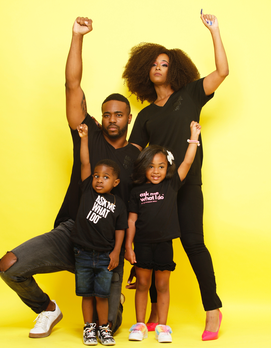 Decades of research have explored how racism affects the mental health and functioning of Black children. In an article published in the Journal of Clinical Child and Adolescent Psychology, the authors discuss that Black youth may experience discrimination and racism but still be resilient and experience positive outcomes (Jones & Neblett, 2017). The question that may come to mind is “how can someone experience racism and not have negative effects such as depression or low self-esteem”? Psychology researchers have discussed the importance of having the “race talk” or engaging in racial-ethnic socialization (RES) for many years. RES involves teaching children about their racial and ethnic heritage, as well as, preparing them to cope with discrimination (Hughes et al., 2006; Jones & Neblett, 2017). The article by Jones and Neblett (2017) demonstrates that engaging in racial and ethnic socialization improves academic performance, decreases depression symptoms, reduces problem behaviors, and provides positive racial identity attitudes among Black youth. By talking with children about racism, researchers note that Black parents prepare their children to overcome adversity by “challenging stereotypes and allowing Black youth to view their racial identity more positively” (e.g., Jones and Neblett, 2017). Recently, several events in society have provided some examples to promote racial pride among Black youth. For example, Judge Ketanji Brown Jackson is the first Black woman to be nominated to serve on the US Supreme Court (See article on NBC News). Although RES also focuses on preparing kids to deal with or experience racism, parents should be sure to teach children positive aspects of their identity such as notable figures, cultural holidays, and important family traditions. Ways to Promote Racial Socialization There are many ways to promote racial socialization. The American Psychological Association released a tool-kit to help parents engage in healthy communication about race and racism. This resource is particularly important given the continued rise of racism and discrimination in America. Here are a few tips to consider: 1. Be prepared to manage your emotions and help your child cope.
Note: A version of this post was authored by Erlanger A. Turner, Ph.D. for Psychology Today. Sources: Hughes, D., Rodriguez, J., Smith, E. P., Johnson, D. J., Stevenson, H. C., & Spicer, P. (2006). Parents' ethnic-racial socialization practices: a review of research and directions for future study. Developmental Psychology, 42(5), 747-770. Jones, S. C., & Neblett, E. W. (2017). Future directions in research on racism-related stress and racial-ethnic protective factors for Black youth. Journal of Clinical Child & Adolescent Psychology, 46(5), 754-766. Photo by My Networking Apparel on Unsplash  Photo by Suad Kamardeen on Unsplash Photo by Suad Kamardeen on Unsplash Early childhood is a critical time period in development when children begin to learn about their environment, develop a sense of self and explore how to express their emotions. While a huge part of development occurs prior to entering school, children continue to grow and develop as they encounter new life experiences. Positive relationships with parents help children develop trust, empathy, compassion and a sense of right and wrong. It is important that parents foster social and emotional learning throughout early experiences. According to experts, when kids learn to work well with others, regulate their emotions and engage in problem-solving, they are better prepared to deal with life’s challenges and be more successful in school. What Is Social and Emotional Learning? Social and emotional learning (SEL) involves creating positive relationships and emotional connections as part of learning to help children develop the skills they need to be successful in life. SEL has often been emphasized in schools, given the amount of time spent in the classroom and the opportunities available to practice these important skills. SEL skills include having the ability to:
Strategies for Supporting SEL in Kids
Remember that life is unpredictable, and many children are learning by watching the actions of adults in their lives. Early childhood is also a critical opportunity to teach social and emotional skills. As kids grow and develop, it is necessary to prepare them to deal with uncertainty now to help them thrive in adulthood. Visit the Therapy for Black Kids book recommendations for books on fostering SEL: http://bit.ly/T4BKbooks A version of this was originally written by Dr. Erlanger Turner for the US News and World Report For Parents Blog |
This blog is maintained by Therapy for Black Kids. Archives
June 2023
Categories
All
|
 RSS Feed
RSS Feed